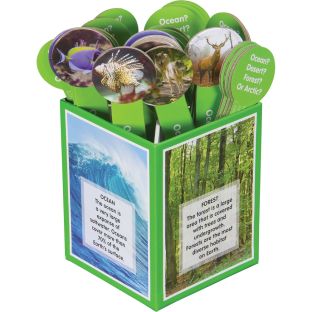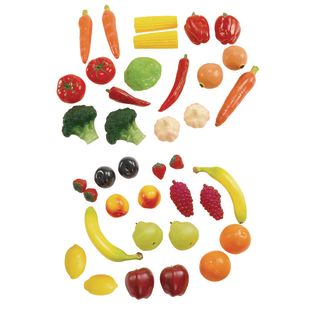Life Science – Preschool
Popular Preschool Life Science Materials
Inspire engagement with popular Preschool Life Science Materials. Our most-purchased Preschool Life Science Materials are versatile and appropriate in most school environments.
Really Good Stuff’s top Preschool Life Science Materials enhance experiences for students as well as teachers. Shop our most popular Life Science Materials for educators.
Preschool Life Science Products
Top-Rated Preschool Life Science Materials | 2025 School Year
Get top-rated Preschool Life Science Materials from Really Good Stuff. Teachers rate these 2 Life Science Materials with an average of 5 stars, making them the best Life Science Materials.
Explore these Preschool Life Science Materials loved by students aged 1 to 6 years-old. Through premium Preschool supplies, Life Science Materials can help your PreK grade to 8th grade class.
Learn More About Preschool Life Science Materials
Enhance your Preschool classroom with Really Good Stuff’s Life Science Materials. Our catalog of 25 high-quality Life Science Materials start at $17.83 and fit the Preschool classroom. From premium brands like Excellerations®, Really Good Stuff®, and Wondersoil, these Life Science Materials meet the needs of Preschool teachers.
Really Good Stuff’s Life Science Materials for Preschool students work for ages 0 to 4 and for grades Newborn to PreK. Teachers match Preschool Life Science Materials with other Life Science Materials from the Science category.
Make Really Good Stuff your top choice when looking for Life Science Materials for your Preschool classroom.
Teaching life science in a preschool classroom can open up a world of curiosity and foundational learning for young children. These formative years are perfect for introducing kids to the wonders of the natural world in an engaging and hands-on manner. Teachers might use life science concepts through interactive activities such as planting seeds and observing them grow, maintaining a small classroom aquarium, or exploring simple life cycles with butterfly kits. These activities cultivate observation skills, responsibility, and a sense of wonder about the environment. Incorporating storybooks that focus on animals, plants, and natural habitats can also help in making life science relatable and enjoyable for young learners.
When choosing life science products for your preschool classroom, consider these three tips. First, select age-appropriate materials that are safe and designed for young children, typically ages 3-5. Look for products that are durable and intended for frequent handling. Second, aim for tools and kits that promote interactive and experiential learning, such as magnifying glasses, bug viewers, and hands-on science kits that allow children to explore and investigate. Lastly, choose products that can seamlessly integrate with your existing curriculum and are flexible enough to be used in multiple ways, ensuring they complement various teaching approaches and learning styles.
Preschool classrooms involve children who are generally aged 3-5 and are at the early stages of developing motor skills, language, and cognitive abilities. When buying life science products for this age group, it’s crucial to consider their developmental stage, ensuring materials are simple, safe, and engaging. Unlike products intended for higher grade levels, those for preschoolers should focus more on sensory experiences and basic concepts rather than detailed scientific terminology or complex experiments. Safety is paramount, with materials needing to be non-toxic, large enough to prevent choking, and easy to manipulate with small hands. Keep in mind that fostering a positive first experience with science can spark a lifelong interest in learning and discovery.
FAQs for Preschool Life Science Materials
What are the highest rated Preschool Life Science Materials?
- Science Flip Chart Primary – 1 flip chart (5 stars) – $45.13
- Excellerations® earlySTEM™ Toddler Specimen Viewers – Set of 4 (5 stars) – $39.99
What Preschool Life Science Materials do teachers use most?
Can you recommend some budget-friendly Preschool Life Science Materials?
- Science Flip Chart Primary – 1 flip chart (5 stars) – $45.13
- Excellerations® earlySTEM™ Toddler Specimen Viewers – Set of 4 (5 stars) – $39.99






















